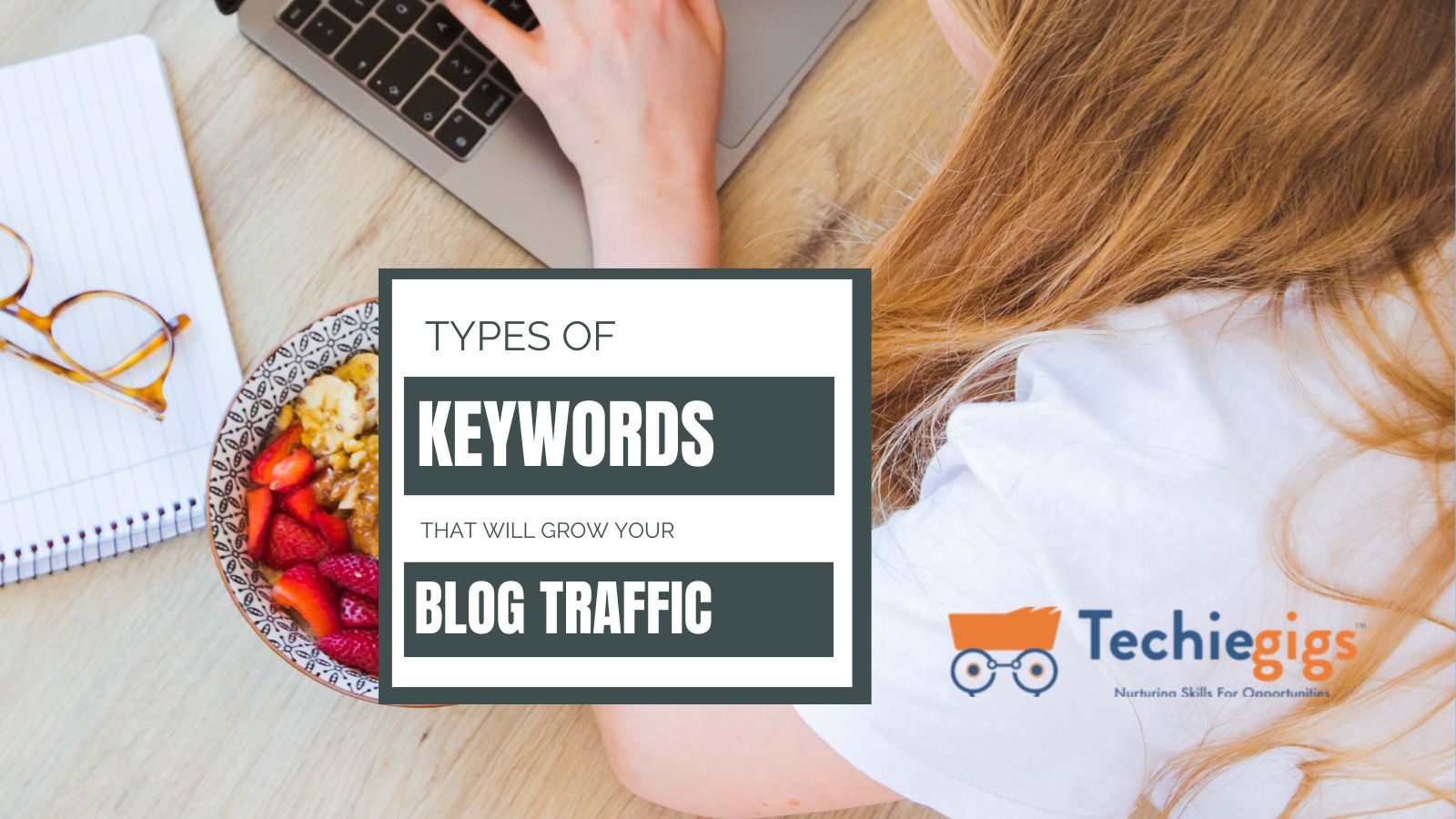Types of keywords in SEO form the foundation of effective Search Engine Optimization, making them a critical component of any content strategy. In the ever-evolving world of digital marketing, understanding these keyword types and their influence is essential for success. Keywords act as the bridge between your content and the queries users search for online. In this blog, we’ll explore the different types of keywords in SEO, why they matter, and how to use them strategically to boost your website’s visibility and rankings.
What Are Keywords in SEO?

Before delving into the types of keywords in SEO, let’s clarify what keywords are. Keywords are words or phrases that users type into search engines when looking for information, products, or services. They act as bridges between what people are searching for and the content you provide.
By strategically using keywords, you can:
- Attract the right audience to your site.
- Improve your website’s search engine rankings.
- Boost organic traffic.
Now that we’ve set the stage, let’s explore the various types of keywords in SEO and their role in crafting a winning strategy.
1. Short-Tail Keywords
Short-tail keywords, also known as head keywords, are broad search terms typically consisting of one to two words. Examples include “shoes” or “digital marketing.” These keywords have high search volumes but are often competitive and less targeted.
Why Use Short-Tail Keywords?
- They help drive significant traffic to your website.
- Great for building brand awareness.
Challenges:
- High competition.
- Lower conversion rates due to their broad nature.
Pro Tip: Use short-tail keywords in combination with long-tail keywords for a balanced approach.
2. Long-Tail Keywords
Long-tail keywords are more specific phrases that typically contain three or more words. Examples include “best running shoes for women” or “how to create a digital marketing strategy.”
Benefits of Long-Tail Keywords:
- Lower competition compared to short-tail keywords.
- Higher conversion rates as they cater to specific search intents.
How to Use Them:
- Incorporate them into blog posts, FAQs, and product descriptions.
- Address user intent more effectively by aligning your content with these queries.
3. Exact Match Keywords
Exact match keywords are precise terms that users search for. For example, if your exact match keyword is “best SEO tools,” your content must include this exact phrase.
Why They Matter:
- High relevance to user queries.
- Boosts ad quality scores in paid search campaigns.
Caveats:
- Requires meticulous keyword research.
- Overuse can lead to keyword stuffing, which search engines penalize.
4. LSI Keywords (Latent Semantic Indexing)
LSI keywords are closely related to your main keyword and help search engines understand your content’s context. For instance, for the keyword “content marketing,” related LSI keywords could include “blogging,” “SEO content strategy,” and “digital marketing tips.”
Advantages of LSI Keywords:

- Avoids keyword stuffing by diversifying your content.
- Enhances your content’s relevance to search engine algorithms.
How to Find LSI Keywords:
- Use tools like Google’s “People Also Ask” section or LSI keyword generators.
- Analyze competitor content to identify related terms.
5. Branded Keywords
Branded keywords include your company’s name or specific product names, such as “Nike shoes” or “HubSpot CRM.”
Why Use Branded Keywords?
- They help capture traffic from users searching specifically for your brand.
- Boost brand loyalty and authority.
Practical Tips:
- Protect your branded keywords with PPC campaigns.
- Use them in meta descriptions and website headers.
6. Non-Branded Keywords
Non-branded keywords exclude any mention of your company name and focus solely on generic terms. Examples include “best CRM software” or “comfortable running shoes.”
Role in SEO:
- Attracts new audiences who may not be aware of your brand.
- Complements branded keywords for a comprehensive strategy.
7. Transactional Keywords
Transactional keywords indicate a strong intent to take action, such as making a purchase or signing up for a service. Examples include “buy SEO tools” or “download free eBook.”
Why They’re Essential:
- Drive higher conversions due to clear intent.
- Perfect for e-commerce and lead generation.
Where to Use:
- Product pages.
- PPC campaigns.
- Call-to-action sections.
8. Informational Keywords
Informational keywords are used by users seeking knowledge or answers to specific questions. Examples include “what is SEO?” or “how to optimize content for search engines.”

Benefits:
- Ideal for blog content and educational resources.
- Establish your authority as a thought leader in your industry.
Content Ideas:
- Create in-depth guides and tutorials.
- Develop FAQ sections on your website.
9. Navigational Keywords
Navigational keywords are used by users intending to find a specific website or page. Examples include “LinkedIn login” or “HubSpot blog.”
Key Takeaways:
- They are critical for branded SEO strategies.
- Focus on optimizing your site’s structure and navigation.
10. Geo-Targeted Keywords
Geo-targeted keywords are location-specific terms, such as “best coffee shops in New York” or “SEO services in London.”
Why They’re Crucial:
- Perfect for local businesses aiming to attract nearby customers.
- Boost visibility in local search results.
Tips for Optimization:
- Include these keywords in Google My Business profiles.
- Use them in localized content and meta tags.
11. Seasonal Keywords
Seasonal keywords are tied to specific times of the year, such as “Black Friday deals” or “Christmas gift ideas.”
Benefits:
- Generate spikes in traffic during specific periods.
- Align with seasonal campaigns to boost sales.
Actionable Steps:
- Plan content calendars around seasonal trends.
- Leverage tools like Google Trends for keyword research.
Why Understanding Types of Keywords in SEO Matters
Knowing the types of keywords in SEO empowers you to:
- Craft a well-rounded content strategy.
- Cater to different stages of the buyer’s journey.
- Stay ahead of competitors by targeting untapped opportunities.
Let’s Optimize Your Keyword Strategy
Understanding the types of keywords in SEO is just the beginning. The next step is putting this knowledge into action. Whether you’re an aspiring blogger, a seasoned marketer, or a business owner, mastering keyword optimization can transform your online presence.
Ready to skyrocket your SEO game? Contact us today for a free consultation, and let’s craft a winning strategy tailored to your needs. Don’t wait—your audience is searching for you right now only at Techiegigs.



